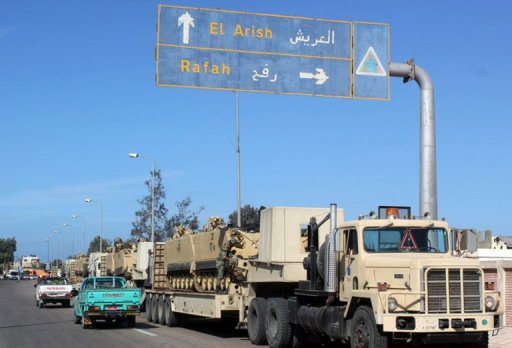By Heba Hesham
CAIRO: Presidential candidate Amr Moussa promised Wednesday to rebuild the country in one presidential term, saying he won’t seek a second.
The candidate presented his electoral program, which he says focuses on the poor and the marginalized, at the shantytown of Ezbet El-Hagana in east Cairo.
Egypt’s former foreign minister said he did not contest the presidential election during the reign of ousted president Hosni Mubarak, because it was a sham.
“Now, the situation is different, because the elections after the revolution are truly democratic. I believe that the Egyptian people will protect and preserve its integrity,” he said.
The integrity of the upcoming election scheduled for May 23-24 has been questioned by a number of hopefuls excluded by the Presidential Electoral Committee.
The disqualified candidates, chief among them ultraconservative Islamist Hazem Salah Abu Ismail, sharply criticized the PEC, expressing their fear that the election will be rigged.
The career diplomat and former secretary general of the Arab League dismissed such speculation as useless, since the PEC has already taken its final decision.
He was more concerned with talk about possibly delaying the vote, stressing the election should be held on time and warning against the consequences of extending the transition period.
Field Marshal Mohamed Hussein Tantawi reportedly said in a meeting early this week with political parties that the election will not be held before a new constitution is drafted to set the authorities of the president.
Moussa suggested that political powers agree on the authorities and functions of the president in the constitution as a first step before the election and then they can agree on the rest of the articles of the constitution.
Moussa is expected to reach the run-off in the coming election especially after the disqualification of the three frontrunners: Abu Ismail, former intelligence chief and Mubarak’s only and last vice president Omar Suleiman, and Muslim Brotherhood leader Khairat Al-Shater.
The chances of Abdel Moneim Abol Fotoh, former Brotherhood member, have also increased with the eliminations.
The race in general is seen to have restored a level of moderation after Tuesday’s announcement eliminated the three hopefuls, along with seven others.
A day later, Moussa announced his electoral program in Ezbet El-Hagana saying that he chose this district as a step to fulfilling a promise he had made to himself, that his first goal if elected is to improve the living standards of Egyptians in rural and urban areas.
“[I promised myself] to improve the standard of the citizen who is born in a cycle of marginalization, disease and unemployment and lived all his life in an attempt to break this captivity,” he said.
“We are living in a marginalized district and we were shocked by the amount of corruption that we heard of after the revolution. So we are only looking for an honest president who fears God in his people, provides work opportunities and makes better plans to reduce the economic problems we face daily,” said a resident of the slum who refused to give his name.
Moussa divided his electoral program, “Rebuilding Egypt: My vision of the second Republic,” into immediate goals, political reform, economic and social issues, along with plans for national security and tourism.
For the first 100 days of his presidency, Moussa put restoring security and ending the state of emergency as immediate priorities. He said he would make use of his international contacts to encourage investment to overcome the economic crisis.
The veteran diplomat, who is seen to use a populace discourse mixed with diplomacy in his campaigning, promised to shield the poor and the unemployed from the impact of the deteriorating economy. This includes an unemployment stipend, worth half of the minimum wage.
He told attendees of the conference that poverty is the biggest enemy and his goal is eliminate it.
The vicious cycle of illiteracy, unemployment and diseases should be broken, he said. Social justice can be achieved, he continued, by bridging the widening gap between the rich and the poor and providing equal opportunities.
Moussa is planning to reduce poverty by 20 percent and eliminate illiteracy among those below 40 years of age, by restructuring government spending by 2016, the end of “his presidential term.”
However, residents of the impoverished district did not seem to find hope in his promises.
“We know that all candidates are only making their electoral campaigning by going to the poorest areas in the country to get the votes of the poor people who’ll believe their promises. But unfortunately, we know that we will see nothing fulfilled of these promises and that we will never see them again until the next elections,” Hassan Abdel Tawab, a man in his 40s, told DNE.
The programs or broad lines of plans offered by candidates are more or less similar. These programs are often sidelined as voter polarization continues to be an issue, which candidates are either struggling with or fueling.
Moussa, who has been known to the public for 20 years prior to 2011 uprising, led the results of weekly polls conducted by a state-run research center.

